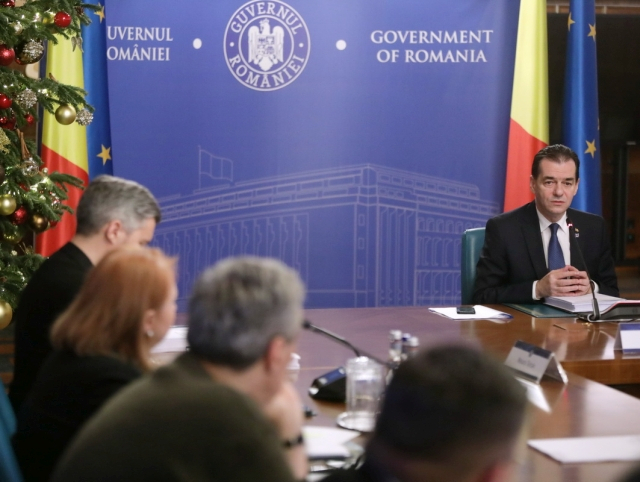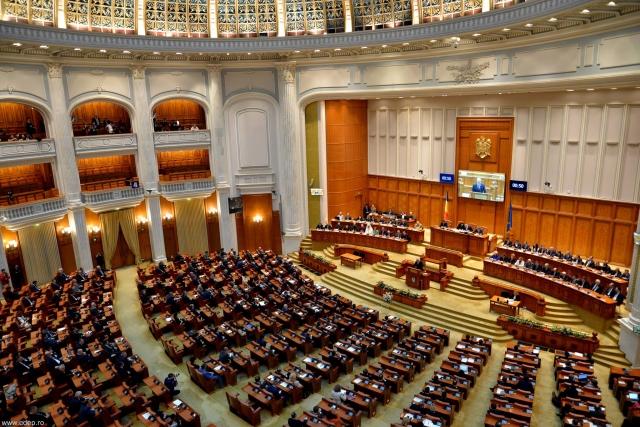HEAT WAVE – Meteorologists have issued a code yellow alert against extreme heat for central, northern and southeastern territories in Romania, in place on Friday. A code orange is also today in effect for the remaining counties. Highs will range between 36 and 40 degrees Celsius during the interval, with the THI expected to exceed 80. A code alert against extreme heat will take effect on Saturday and Sunday, affecting central, northern and southeastern territories, while a code red alert will be declared in the other counties. This is the most severe such weather alert issued by the authorities so far, with highs expected to reach 41 degrees. Central and local authorities are preparing measures to deal with the effects of the heat wave.
DECREE – The Government has amended the Emergency Decree on drug testing of drivers, after civil society harshly criticized the document. In the event lab tests of biological samples are not ready within 72 hours, drivers can have their licenses back. Authorities said all drivers will be submitted to a drug test if road traffic agents find illegal substances in their vehicle or in their possession. Should final lab tests turn positive, drivers will lose their licenses again and will bear the full consequences of the law.
BEAR POPULATION – The Chamber of Deputies will at the start of next week convene in an emergency session to adopt a number of legislative amendments regarding the bear population of Romania. According to one such proposal, some 500 bears that endanger human lives are expected to be shot. Romanian forests are home to some 8,000 bears, although their natural habitat can sustain only half this figure, former Environment Minister Tánczos Barna told Radio Romania. The rise in bear population and their ever-growing presence close to human settlements were submitted to public debate again after a young girl was tragically killed three days ago in a popular hiking trail.
SALARIES – The net average salary in Romania dropped to 1,025 EUR in May, by nearly 10 EUR less compared to April 2024, the National Statistics Institute reports. The gross average salary stood at 1,671 EUR, by 35 EUR less compared to April 2024. The highest average salary is reported in the IT sector, including the provision of IT services – 2,250 EUR, while the lowest average salary is reported in clothing manufacturing – 550 EUR.
INVESTIGATION – The former leftist Prime Minister of Romania in the 1990s, Petre Roman, on Friday appeared before prosecutors for a deposition in the so-called 1990 Miners Raid investigation, where he stands accused of crimes against humanity. The former president Ion Iliescu, deputy Prime Minister Gelu-Voican Voiculescu and former Romanian intelligence chief Virgil Măgureanu are also prosecuted in the investigation.
CULTMUSE – The National History Museum of Romania will be hosting the „Cultures and Heritage through Museum Education” (CULTMUSE) project for the next month. 14 volunteers from Romania, France, Sweden, Estonia, Finland and Latvia will take part in various activities designed to encourage the public to discover the world of museums. The project is funded by the European Union through the European Solidarity Corps programme.
FOOTBALL – Romanian Cup winners Corvinul Hunedoara on Thursday defeated Hungary’s champions Paksi FC 4-0 in the first leg of the first preliminary round of Europa League. The return leg is scheduled for July 18 in Romania. Corvinul returns to European inter-club competitions after a 4-decade break. Corvinul last played in the 1982-1983 edition of the UEFA Cup, when they knocked out Grazer AK of Austria in the first round but were ousted by FK Sarajevo of the former Yugoslavia in the second round. We recall Romanian football champions FCSB defeated 7-1 Virtus of San Marino on Tuesday in the first leg of the Champions League first preliminary round. The return leg will be played in Bucharest next week. (VP)









